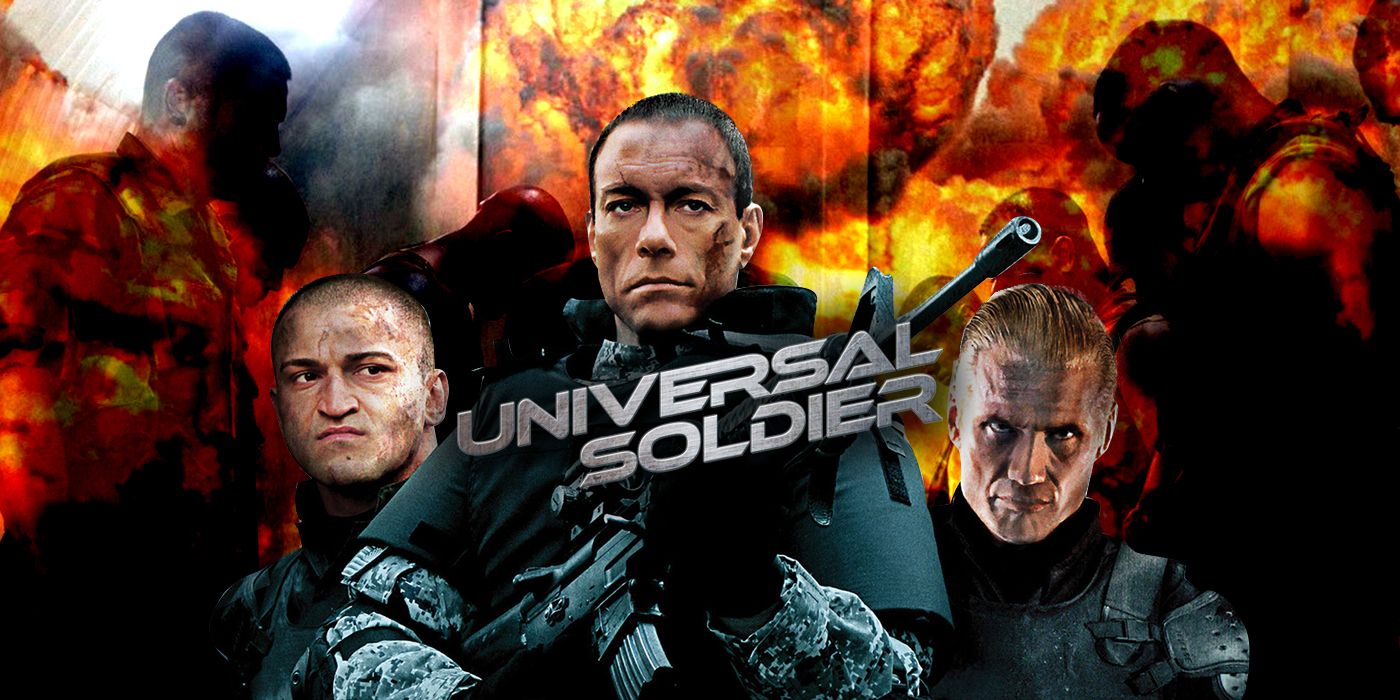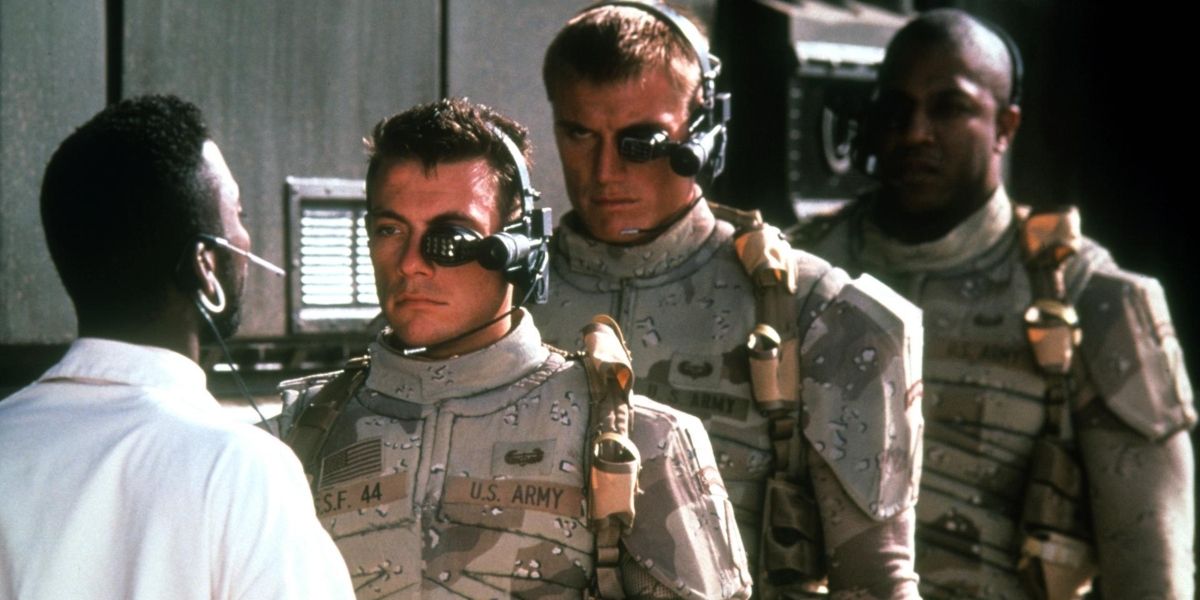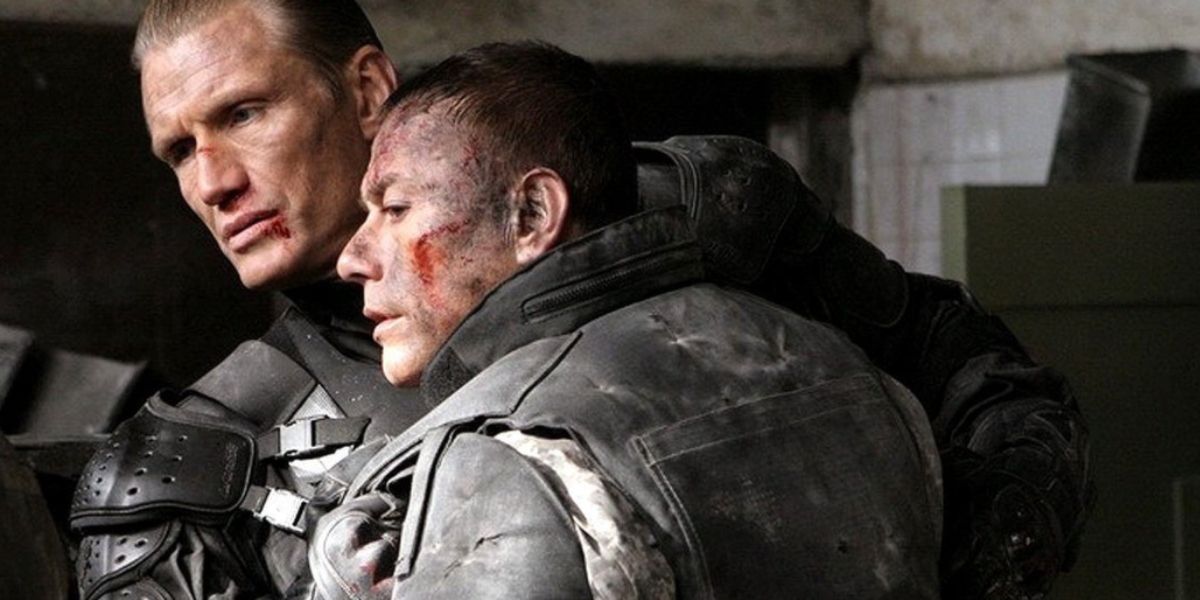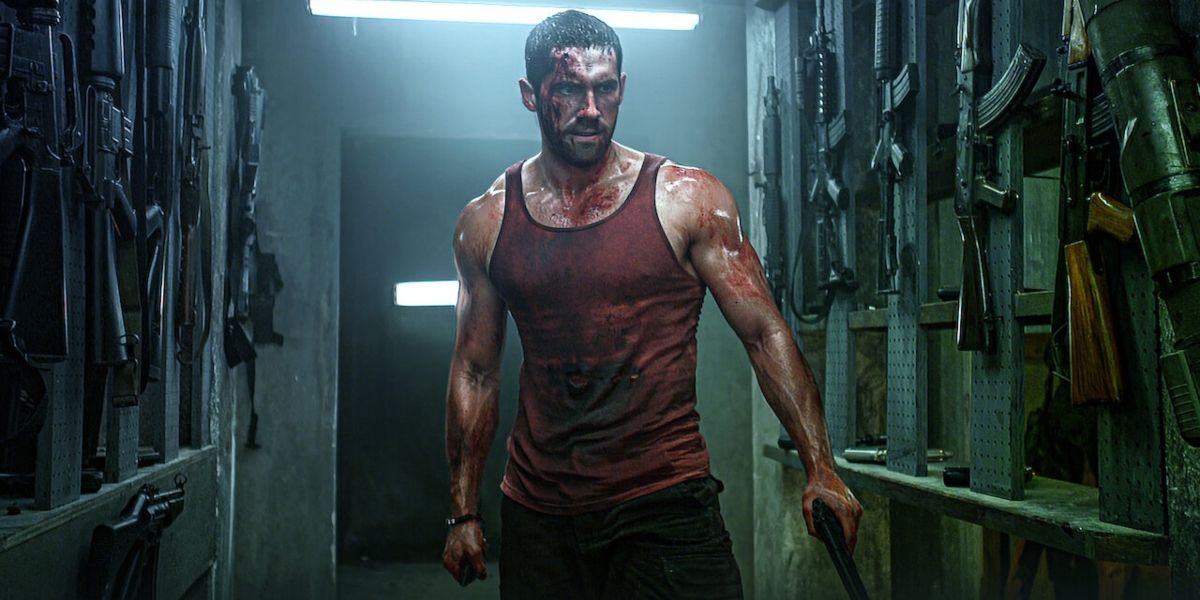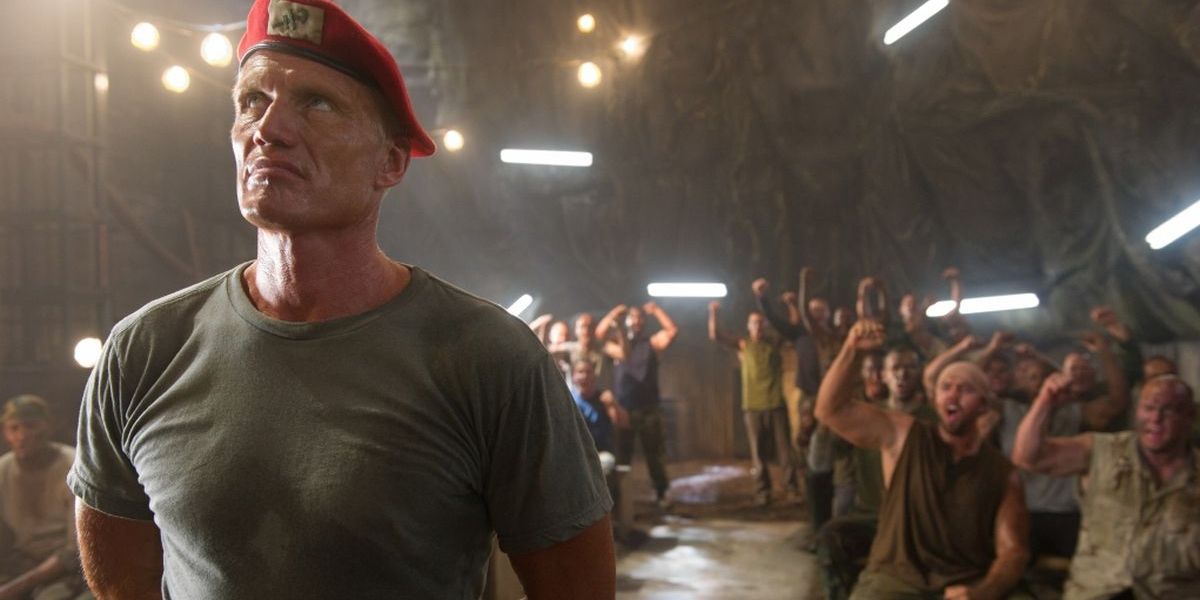Universal Soldier isn’t a particularly memorable movie. It’s not quite as fun or as gleefully indulgent as other films within the Roland Emmerich filmography, and it doesn’t feature the best from either Jean-Claude Van Damme or Dolph Lundgren, both of whom are mostly stripped of the charisma they normally bring to their performances. It’s a film that fetishizes the U.S. military in a vein similar to other 90s action movies, but not to the point of campy fun in the style of Tony Scott or Michael Bay. The plot, which sees deceased U.S. Commando Luc Deveraux (Van Damme) being robotically re-animated to take on his once equally-dead former sergeant Andrew Scott (Lundgren), is a lot like Robocop without any satirical commentary or worldbuilding. Mostly, it's about two beefcakes beating each other to death.
Yet, the film was a modest box office hit, spawning several less-than-stellar sequels. Any charms the first film had were completely stripped away by the time Universal Soldier: The Return hit theaters in 1999 and effectively marked the end of Van Damme’s mainstream movie career. That wasn’t even the low point of the franchise; prior to The Return, Showtime attempted to cash in on the brand with Universal Soldier II: Brothers in Arms and Universal Soldier III: Unfinished Business, two television movies that featured none of the cast, characters, or crew from the first film.
There’s no reason that anyone would ask for another installment in this doomed franchise, but like Deveraux and Scott, Universal Soldier refused to die. Director John Hyams (son of 2010: The Year We Made Contact and Outland director Peter Hyams) took over the franchise in 2009 with the direct-to-video Universal Soldier: Regeneration. What followed was incredible: A series that had once been the epitome of Hollywood schlock somehow became one of the coolest and most experimental ways to reinvent a franchise.
Regeneration begins by immediately grounding the established mythology in actual stakes. Deveraux is no longer bound to his life as a super-soldier, but rather undergoing therapeutic rehabilitation at an underground facility in Switzerland. Van Damme never had the range of his rival action stars, but he’s rather effective here as a man stripped of his memory, forced to deal with PTSD flashbacks and subsequent violent impulses. If the Vietnam setting was merely a location in the original, Regeneration actually says something about what it’s like to fight in a conflict you have no stake in. Of course, Lundgren needed to pop back up, and the same rogue scientists who revitalize Deveraux once again decide to maximize their chances of success by bringing back his former nemesis. It’s a pretty clear copy of the first film’s plot, but this time it actually leans into a criticism of the U.S. military for relying on shady contractors to develop superweapons.
But it’s Hyams’s direction of the action sequences that really elevate Regeneration into something more than a cash grab. On a budget of only $9 million (the original cost $23 million, and that was 1992), Hyams focuses on practical stunt work and realistic setpieces. Direct-to-DVD films are commonly thought of as second-rate alternatives to mainstream releases, but Regeneration boasted more cost-effective and labor-intensive stunt work than a lot of its theatrical counterparts. The final brawl between Van Damme and Lundgren leans into its ridiculousness as the pair face off outside of a nuclear plant, but with all the damage, blood, and gore the first film lacked. It would be cruel to spoil the epic final kill, but know that Lundgren goes out in a way that might even impress horror's splatter-master Sam Raimi.
Hyams took the core idea of the franchise and transformed it into something different. Hollywood often tries to reinvent and reboot action franchises, but Universal Soldier: Regeneration did it the right way. Similar to how Phillip Kaufman’s Invasion of the Body Snatchers or David Cronenberg’s The Fly elevated campy originals into more prestige fare, Regeneration added legitimacy by swapping the tone. However, it was only the beginning of what Hyams could do with the series.
The 2012 follow up, Universal Soldier: Day of Reckoning, is quite frankly one of the coolest movie sequels of the past decade. It comes with a sense of novelty; Mad Max: Fury Road and Blade Runner 2049 are amazing, but the originals were, too. Day of Reckoning turns the formerly cheesy series into a garish nightmare in which violent men are bound to their excesses and drawn into a haunting supremacist cult. In a clear homage to Michael Haneke’s Funny Games, Day of Reckoning begins with a POV home invasion in which a new character, a former soldier known only as John (Scott Adkins), is forced to witness his family’s murder at the hands of none other than Deveraux, who now fronts an anti-government regime alongside his former rival, Scott. John’s personal revenge mission comes laced with the trauma of this violent act.
Although it's a product of a pre-Trump era, Day of Reckoning is eerily prescient of the dangers of Internet cult radicalization and conspiracy theories. Deveraux and Scott promise “freedom” to their followers and “answers” to what their government is hiding, but in reality, only seek to feed their own interest in violence, a 21st-century parallel to Fight Club. Deveraux’s reveal at the end of the film brings the Vietnam commentary full circle when he appears in face paint unmistakably inspired by Marlon Brando in Apocalypse Now.
If you don’t know the name Scott Adkins, you’ve probably seen his face a few times, as his stunt performances have popped up in many blockbuster films including The Bourne Ultimatum and Doctor Strange. Like Van Damme and Lundgren, no one would confuse Adkins for an Oscar-winner, but in many ways, the fact he’s playing this static, unemotive character caught within a cycle of violence actually aids the film’s political commentary. Most importantly, Adkin is unbelievable in the action sequences, and Hyams improves on Regeneration even further with a combination of first-rate martial arts action and gruesome body horror. These superpowered men have literally been freed from pain, so when John and Scott face off, Lundgren needs to be cut down to the bare bones.
There’s really nothing like the Universal Soldier series. It set a template that studios should follow more often. Instead of a bloated, obligatory continuation of a property no one really needed, Universal Soldier opted to grant creative freedom to an exciting, relatively unknown director to make two low-budget and (more importantly) deeply weird movies. By putting all the risks on the creative side and not the potential box office returns, Universal Soldier redeemed itself.

